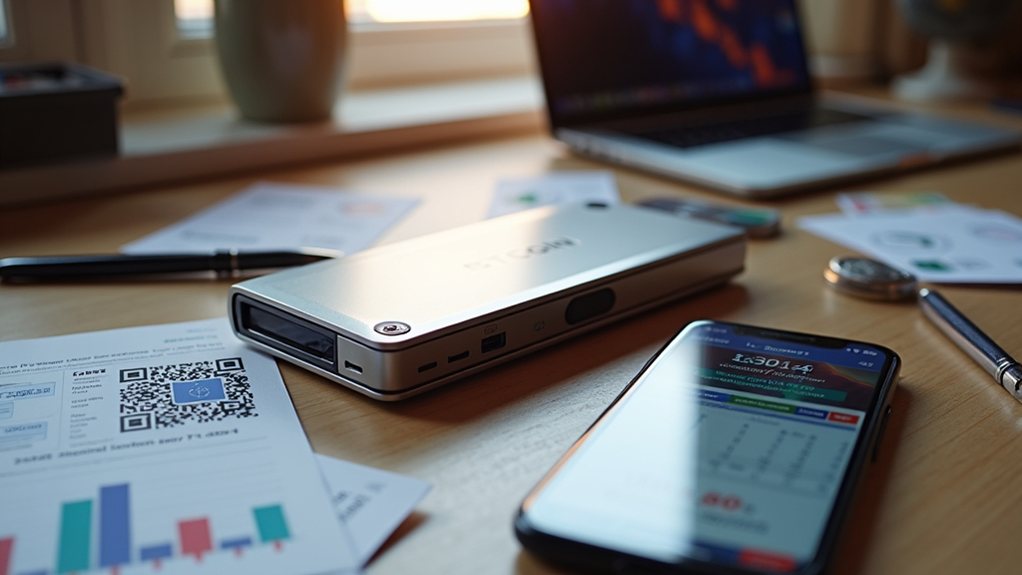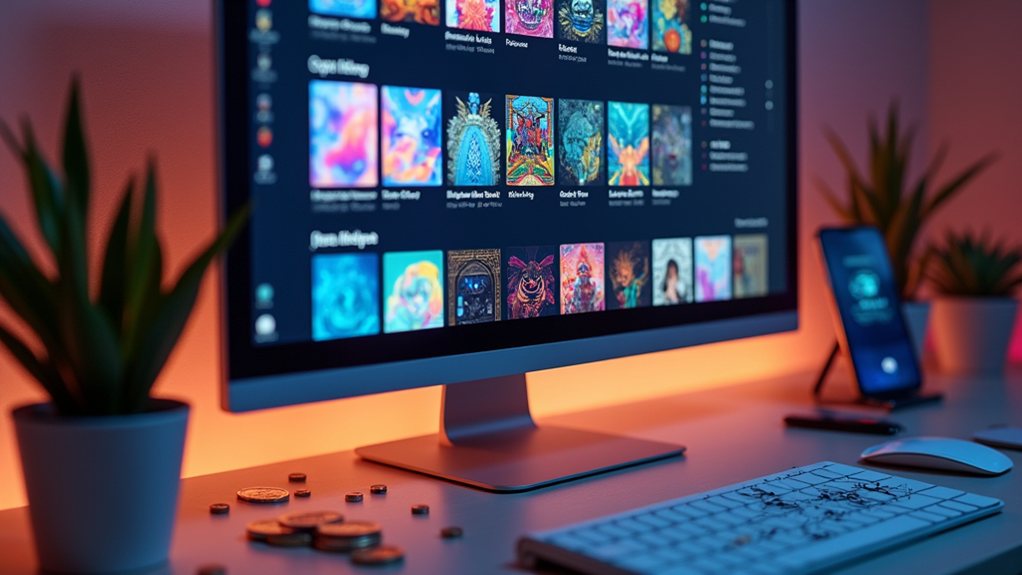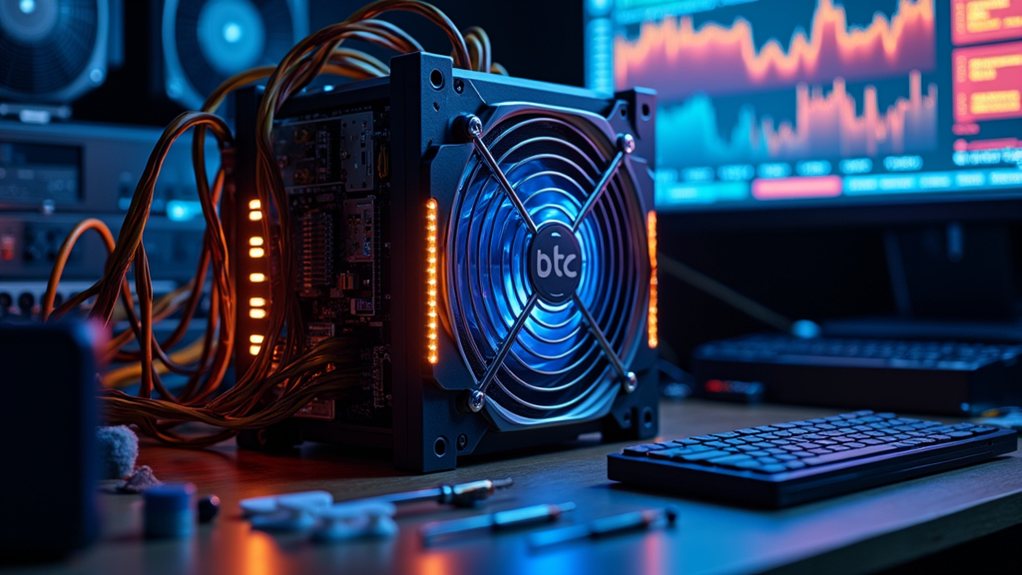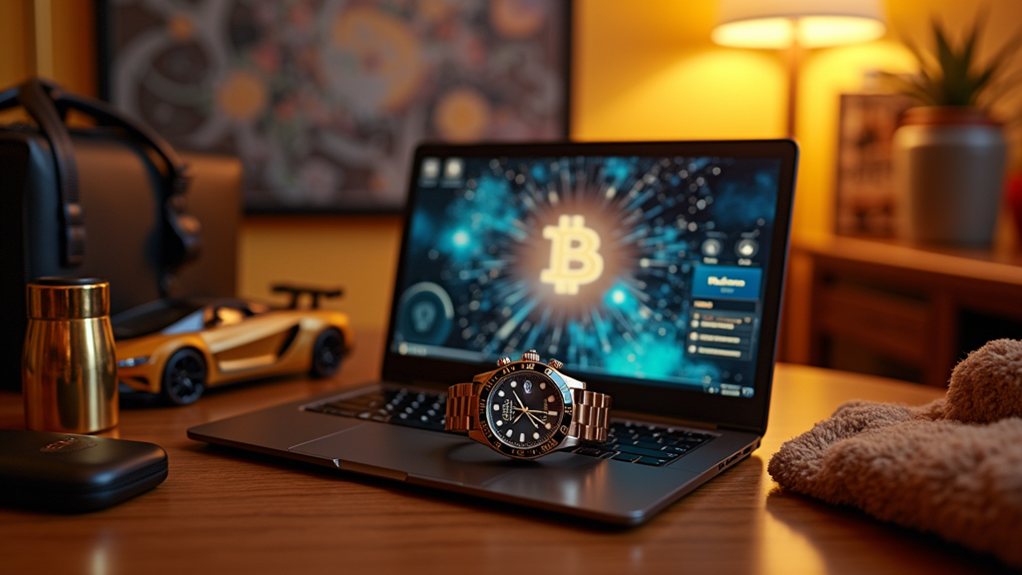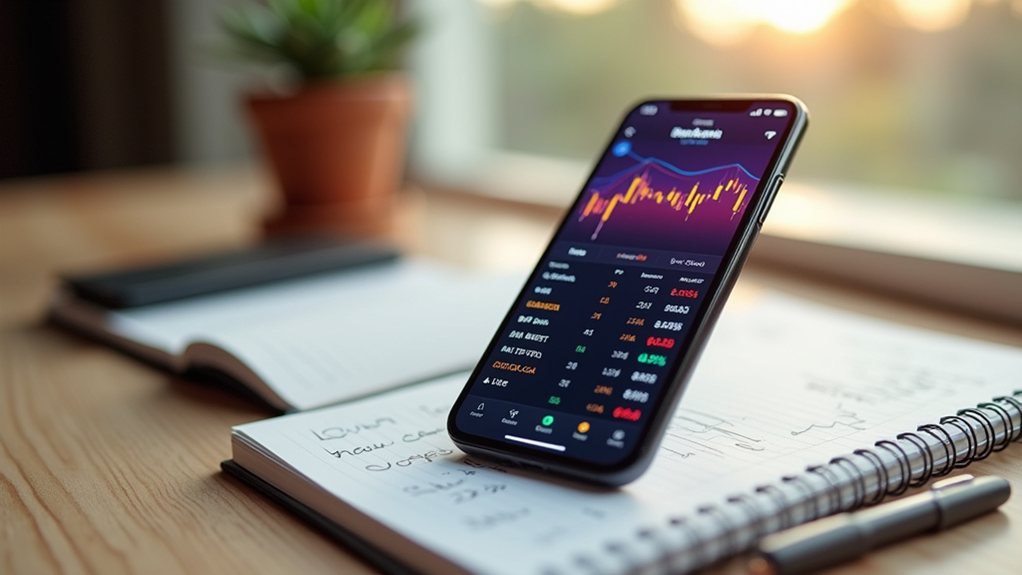Bitcoin wallets are digital containers that store private keys needed to access and move Bitcoin on the blockchain. Fundamentally your crypto bank account, without the bank. They come in various types: hardware devices for maximum security, software apps for convenience, or even paper printouts for the truly paranoid. Setup is straightforward—download or purchase, create wallet, safeguard seed phrase. Lose your private key, kiss your Bitcoin goodbye forever. Proper security isn't optional in this world.
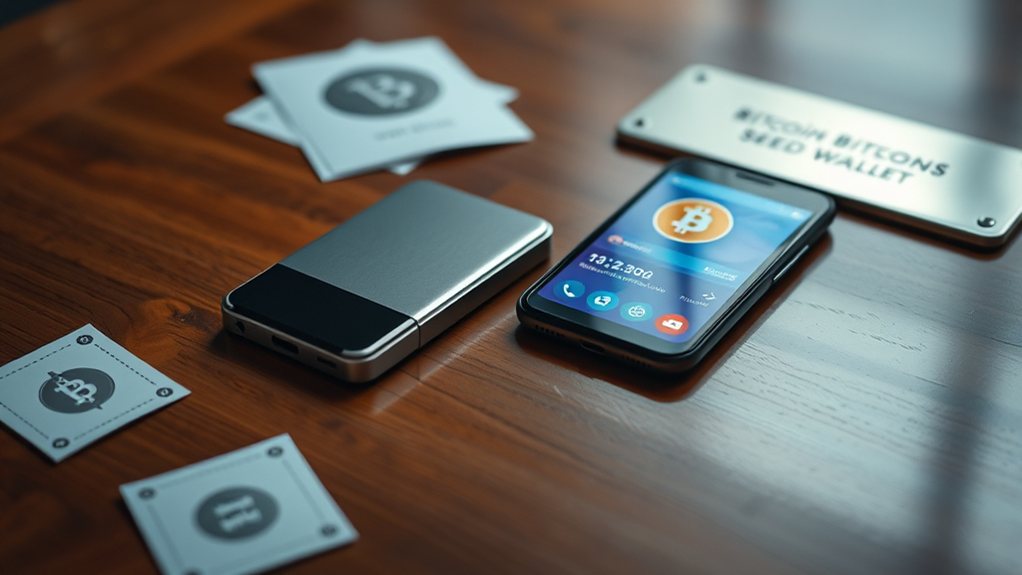
As the cryptocurrency revolution marches on, Bitcoin wallets have become essential tools for anyone dabbling in digital money. Simply put, they're digital containers that store, send, and receive Bitcoin. But unlike traditional wallets stuffed with cash, these store the cryptographic keys needed to access your funds on the blockchain. Think of them as your personal crypto bank account, without the annoying bank manager or ridiculous fees.
Bitcoin wallets come in several flavors. Hardware wallets are physical devices that look like USB sticks and keep your keys offline. Pretty smart, actually. Software wallets exist on your computer or phone, convenient but potentially vulnerable. Paper wallets are literally printed pieces of paper with your keys on them—old school but effective if you don't spill coffee on them. Brain wallets? Just memorized passphrases. Good luck with that one. Custodial wallets are managed by exchanges for users seeking convenience over control.
Your Bitcoin storage options range from high-tech gadgets to literal pieces of paper. Choose wisely—your crypto fortune depends on it.
Every wallet has essential components: a public address (where people send you Bitcoin), a private key (the secret code that lets you spend), and usually a seed phrase for recovery. Most wallets feature user interfaces showing your balance and transaction history. Nothing complicated, right? Wrong. The security of these components means everything. Losing your private key means permanent loss of Bitcoin.
Getting started with a wallet isn't rocket science. Choose one that fits your needs—casual users might opt for mobile apps while serious hodlers prefer hardware solutions. Download the software or buy the device, create a new wallet, and safeguard that seed phrase like your life depends on it. Because financially, it might. Some people engrave their seed phrases on metal plates. Paranoid? Maybe. Smart? Definitely.
Using a wallet is straightforward. Want to receive Bitcoin? Share your public address. Sending funds? Enter the recipient's address, specify an amount, and confirm. Transactions aren't instant—the network needs time to process them. Fees vary based on network congestion. Pay more, move faster. That's the game.
Security isn't optional with Bitcoin wallets. Use strong passwords. Enable two-factor authentication. Update your software regularly. Casual about security? Enjoy being hacked. Most wallets offer features like QR code scanning for addresses, custom fee settings, and address books for frequent contacts. Implementing AES-256 encryption for private key protection is essential for robust security against potential theft attempts.
The wallet you choose depends entirely on your needs. Day traders want convenience. Long-term investors prioritize security. Some wallets connect to exchanges for trading; others focus purely on storage. Whatever you pick, remember: your wallet is the gateway to your digital fortune. Treat it accordingly. No pressure or anything. Bitcoin doesn't forgive careless mistakes, and neither does the blockchain. Choose wisely.
Frequently Asked Questions
Can I Recover My Wallet if I Forget My Password?
Forgotten wallet password? Not all hope is lost. Recovery options exist.
Using backup seed phrases is the easiest way out. No seed phrase? Brutal.
Professional recovery services might help – they charge 10-20% of recovered funds with success rates around 35-40%.
Some folks try password recovery tools like BTCRecover. Without any backup information though? Those coins might be gone forever. Simple as that.
Are Bitcoin Wallets Insured Against Theft or Hacking?
Bitcoin wallets typically lack insurance coverage. Unlike traditional banks, there's no FDIC protection here.
Some exchanges offer limited insurance for hot wallets, but it's rarely extensive. Cold storage? You're mostly on your own.
Private insurance options exist for wealthy hodlers. Mt. Gox and Bitfinex hacks proved how devastating uninsured losses can be. Millions gone, poof.
Self-insurance through diversification is what most experts recommend. Not ideal, but that's crypto for you.
How Do Transaction Fees Work With Different Wallet Types?
Transaction fees vary by wallet type.
Hardware and software wallets charge only network fees, letting users customize rates. Mobile wallets offer simplified fee selection interfaces.
Web/exchange wallets? They're the money-grabbers, often adding platform fees on top of network costs. Some exchanges batch withdrawals to cut costs.
Bottom line: non-custodial wallets typically just pass through blockchain fees. Exchanges love their extra charges. That's capitalism for you.
Can I Use One Wallet for Multiple Cryptocurrencies?
Yes, multi-cryptocurrency wallets exist specifically for this purpose. Options like Trust Wallet support over 1 million assets across 65+ blockchains.
Exodus handles 250+ cryptocurrencies. Hardware solutions like Ledger and Trezor accommodate thousands of coins.
MetaMask works primarily with Ethereum-based tokens. These wallets simplify portfolio management and tracking.
One interface, multiple cryptocurrencies. Makes life easier. Just don't forget about security—each type has different protection measures.
What Happens to My Bitcoin if the Wallet Company Closes?
When wallet companies fold, your Bitcoin fate depends on one thing: who holds the keys.
Self-custody wallets? No problem. You keep your crypto if you've saved those recovery phrases.
Custodial wallet? You might be screwed. Companies go bust all the time.
Hardware wallets are safest—they couldn't care less if their maker vanishes.
Regular backups matter. Bankruptcy courts can take forever, and crypto owners often land at the bottom of creditor lists.

